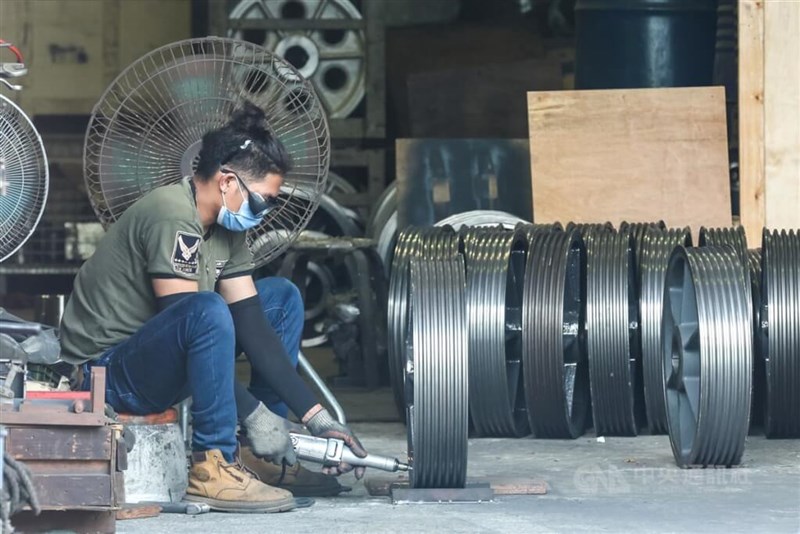
Taipei, Nov. 3 (CNA) Taiwan's manufacturing sector returned to expansion in October after four consecutive months of contraction, driven by strong demand for artificial intelligence (AI)-related items, the Chung-Hua Institution for Economic Research (CIER) said Monday.
The seasonally adjusted purchasing managers' index (PMI), which reflects the overall performance of the manufacturing sector, rose by 2.0 points from a month earlier to 50.3 in October, ending a four-month contraction streak, according to the economic think tank.
A PMI reading above 50 percent indicates expansion, while one below that level signals contraction.
Among the five key components of the October PMI, the subindexes for new orders and production returned to expansion, rising 3.9 and 4.5 points, respectively, to 51.1 and 53.2, said CIER Associate Research Fellow Chen Hsin-hui (陳馨蕙).
These gains were the main drivers of the overall rebound, she said.
Meanwhile, the subindexes for employment and inventories remained in contraction, while supplier deliveries increased by 2.5 percentage points to 52.6 percent, staying in expansion mode, the data showed.
Chen attributed the improvement mainly to robust demand for power, energy, and cooling equipment related to AI applications, along with rising investment in semiconductor production gear, including related to CoWoS advanced packaging technology and high-bandwidth memory.
She said the impact of tariffs on industries such as the auto and textile businesses had eased, while short-term rush orders and restocking demand made business conditions better than expected.
Chen cautioned, however, that most manufacturers still reported low order visibility and uncertain end-market demand, particularly in the petrochemical and metal-related sectors.
All six major industries in the survey -- chemical and biotech, electronics and optoelectronics, food and textiles, basic materials, transportation equipment, and electrical equipment -- continued to report a contractionary outlook for the next six months, she said.
CIER President Lien Hsien-ming (連賢明) said both the manufacturing and non-manufacturing sectors showed improvement in October, consistent with strong third-quarter export performance.
He noted, however, that most companies remained cautious about the next six months, indicating sentiment has yet to turn optimistic.
While non-high-tech industries remain most affected by tariffs, AI, power and machinery-related sectors have helped offset some of the negative impact, Lien said.
He indicated that it was still too early to say whether the tariff effects have fully eased, adding that uncertainty remains as the outcomes of Taiwan-U.S. tariff talks and the U.S. Section 232 review are still pending.
-
Politics
Taiwan-U.S. trade deal still in limbo: Premier
03/03/2026 01:06 PM -
Business
Taiwan's consumer confidence weakens slightly in February
03/03/2026 11:07 AM -
Business
U.S. dollar higher in Taipei trading
03/03/2026 10:42 AM -
Culture
Mandopop singer Sun Yanzi to perform at Taipei Dome in May
03/03/2026 10:22 AM -
Society
Heavy rain advisory in effect for Nantou County
03/03/2026 10:16 AM